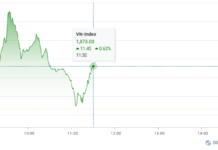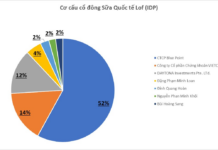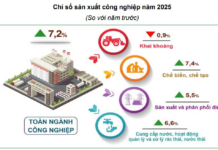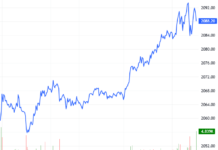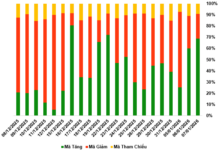Thailand Leads the Way in the Global Crypto Tourism Trend
On August 18, Thailand officially launched ‘TouristDigiPay’, a groundbreaking initiative to revive its tourism industry, which has been affected by a decline in international arrivals, especially from China.
The program allows foreign tourists to convert cryptocurrencies such as Bitcoin, Ethereum, or stablecoins like Tether and USDC, into Thai baht for electronic payments, mainly via QR codes, at shops, restaurants, and tourist attractions nationwide.
With a monthly spending limit of 500,000 baht (over 400 million VND) for large businesses and 50,000 baht for small shops, the program not only provides convenience for tourists but also boosts revenue for the Thai economy.
This move is not just a strategic step to rescue the tourism industry, which welcomed over 20 million international arrivals and contributed approximately 940 billion baht to Thailand’s economy in the first eight months of 2025, but also cements the country’s position as a regional digital finance hub.
‘TouristDigiPay’ is expected to attract tech-savvy travelers and digital asset owners, thus increasing spending and competitiveness with destinations like Japan and Vietnam.

Various workshops within the framework of GM Vietnam 2025. Photo: VGP/HT |
Thailand is not the first country in Asia to adopt cryptocurrencies in tourism. Bhutan has taken the lead with its national-scale crypto payment system for tourism, allowing tourists to pay for everything from air tickets and visa fees to small purchases like fruits by the roadside through its collaboration with Binance Pay.
This system integrates over 100 cryptocurrencies and is accepted by more than 100 local businesses, benefiting both travelers and small rural service providers. As of early April, Bhutan held Bitcoin worth over $600 million, accounting for 30% of the country’s GDP.
Globally, policies related to digital assets have also made significant strides.
In the US, cryptocurrencies are considered taxable assets, with stringent regulations from the Securities and Exchange Commission (SEC) and the Financial Crimes Enforcement Network (FinCEN). However, states like Wyoming and Texas have enacted blockchain-friendly laws, encouraging businesses to accept cryptocurrencies as a means of payment.
In contrast, China maintains a tight grip, banning cryptocurrency transactions since 2021, while aggressively promoting its national digital currency (e-CNY) with trials in several major cities.
Within Southeast Asia, Singapore stands out with its progressive legal framework, licensing cryptocurrency exchanges and integrating blockchain into its financial system. Malaysia is also exploring blockchain applications in cross-border payments, while Indonesia takes a more cautious approach, requiring exchanges to register with the regulator.
These moves indicate a common trend: countries are striving to balance financial innovation and risk management to harness the potential of digital assets.
Vietnam Seizes the Opportunity to Become a Regional Digital Asset Hub
In Vietnam, the digital asset market is attracting attention as the legal framework for piloting a digital asset exchange is expected to be issued in August 2025.
Under the government’s direction, the Ministry of Finance is finalizing a resolution on piloting the digital asset market, laying the foundation for a transparent and secure digital financial ecosystem. This will allow licensed organizations to operate digital asset exchanges, with stringent criteria for chartered capital (a minimum of VND 10,000 billion), information security level 4, and risk control and anti-money laundering procedures.
The draft resolution defines digital assets as a type of digital property that uses encryption technology for authentication, intended for exchange or investment purposes, excluding securities or digital legal tender.
During the five-year pilot period, licensed organizations will provide digital asset issuance, custody, and trading services, prioritizing assets backed by tangible assets to ensure transparency and minimize risk. Only foreign investors and Vietnamese individuals or organizations owning digital assets will be allowed to participate, with clear rights and responsibilities outlined.
The GM Vietnam 2025 event, held on August 1-2 in Hanoi, underlined Vietnam’s digital transformation ambition. With over 20,000 attendees and hundreds of international speakers, the event emphasized the role of blockchain and digital assets in the country’s economic development strategy.
Phó Thống đốc Ngân hàng Nhà nước Việt Nam (SBV), Mr. Phạm Tiến Dũng, stated that Vietnam has established a legal foundation for digital assets through three significant milestones: the resolution on the international financial center, the draft resolution on piloting the digital asset exchange, and the Law on Industrial Property and Digital Technology. These steps demonstrate both strategic vision and concrete actions toward global integration.
Companies like SSID and MBB are actively preparing for the pilot phase.
According to Triple-A’s 2024 report, Vietnam has approximately 20 million digital asset owners, presenting a vast potential market. However, cybersecurity challenges and supervisory capabilities still require close coordination between regulatory authorities and businesses.
Evidently, Vietnam is poised to become a regional digital asset hub. If successful, the digital asset market could generate billions of dollars in revenue, boosting the digital economy and international integration in the coming decade. Nonetheless, this domain is novel, technologically demanding, and fraught with risks.
Mạnh Hà
– 15:26 19/08/2025
“Financial Institutions Embrace the Digital Asset Revolution”
The legalization of digital assets marks a pivotal moment in Vietnam’s legal history. While the regulatory framework is still a work in progress, the investment appetite from financial institutions is palpable, with many proactively laying the groundwork to enter the fray when the proverbial green light shines.
Proposed Controlled Trial of Digital Assets and Cryptocurrencies at the International Finance Center
“The Ministry of Finance has proposed that the International Finance Centre in Danang will pilot a controlled experiment with digital assets and currencies. This cutting-edge initiative aims to position Vietnam at the forefront of the digital economy, leveraging the country’s strong technological foundations and innovative spirit.”
The Digital Asset Investment Frontier: Unlocking the Potential
Bitcoin has come a long way since its mysterious inception on October 31, 2008. In just 16 short years, it has evolved from a niche digital currency to a global financial powerhouse, with a market capitalization in the billions. But is Bitcoin’s remarkable growth simply a fluke, or does it signal a new era in the world of finance?
“Proposed Pilot for Trading Tokenized Securities on a Digital Asset Exchange”
“Techcom Securities (TCBS) is proposing a pilot program for trading tokenized securities on a digital asset exchange. This innovative approach to securities trading offers a host of potential benefits, including increased liquidity, improved price discovery, and enhanced access to capital. By leveraging blockchain technology and smart contracts, TCBS aims to revolutionize the way securities are traded, bringing greater efficiency and transparency to the market. This proposal marks a significant step forward in the evolution of capital markets, and we invite you to join us on this exciting journey.”

